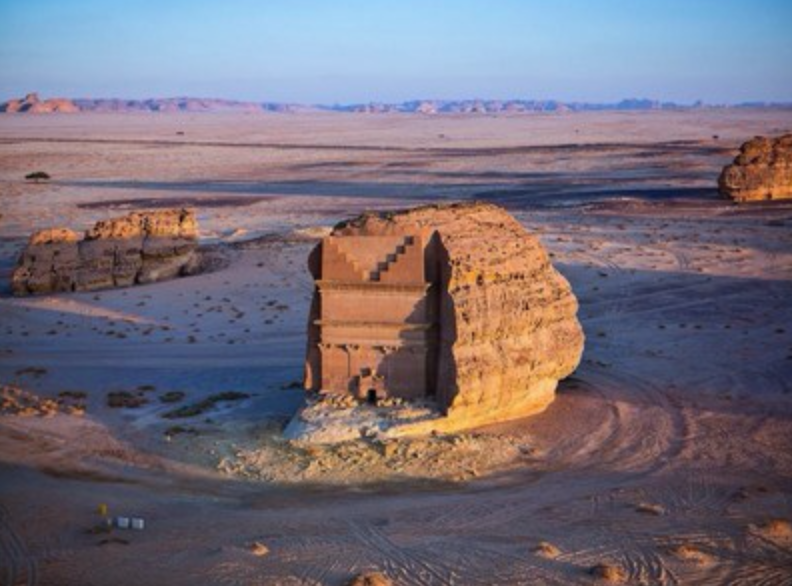
Royal Commission for Al-Ula Launches Archaeology Programme in Al-Ula
A major integrated archaeological survey of the Al-Ula valley and beyond has been launched by the Royal Commission for Al-Ula (RCU), charged with protecting and regenerating this North-Western Saudi Arabia region. Until a conservation and development plan can be established, some of the sites, including the UNESCO World Heritage site Mada'in Salih, are temporarily closed to the public. Re-opening in 2020, the temporary closure will allow experts the opportunity to carry out vital research activity and plan for how to best preserve and present the sites.
The Royal Commission for Al-Ula was established in July 2017 to protect and preserve the region's extraordinary ancient heritage and natural landscapes and prepare for an era of renewed international collaboration and tourism coinciding with the goals of Vision 2030.
Home to dramatic desert landscapes, spectacular rock formations and some of the Middle East's most significant ancient sites, including those built by Lihyanite and Nabataean civilisations of the 1st millennium BCE and beyond, Al-Ula is a wonder of the ancient Arabian world.
State of the Art Technology
Using state-of-the-art technologies and methods, such as aerial LiDAR scanning and photography captured from light aircraft, helicopter and drone, a team of world-leading experts, led by RCU archaeologist Dr Rebecca Foote, will meticulously document, map and model the area, supporting RCU's mission to uncover Al-Ula's ancient secrets and mysterious past. Capable of recording surface features through vegetation, the LiDAR, for example, will 'see' what lies amongst the palm groves of the oasis, and the helicopter team will record the remote and harder to reach sites.
Thoroughly documenting the area will provide a better understanding of these incredible cultural heritage sites and their ancient past, something that is vital to safeguarding it for future generations. Providing a window into the people and cultures that shaped the past, the findings will be collated in a bespoke heritage database (Arches) and used by RCU to develop a plan for preserving, studying and activating the area's unique features.
The RCU archaeological survey programme supports the Commission's mission to protect and develop the heritage and historical sites of Al-Ula in order to achieve a sustainable transformation and to enable local, regional and international visitors to learn about the richness of its cultural, historical and natural heritage.
Combined Local and International Expertise
Situated at a historic nexus of civilisations, on an important route of travel used from at least the first millennium BCE for the trade of valuable commodities such as frankincense and myrrh, Al-Ula is built on a history of exchange between cultures.
This exchange of knowledge and cultures goes back millennia and continues to be a crucial part of the area's identity, and is a blueprint for its future. Taking a collaborative approach, RCU is working with international and local archaeologists, including teams from the UK, France, Australia and KSA. As part of the Royal Commission's programme, students from King Saud University are being trained by expert archaeologists in international best practice, equipping them with the skills to become the next generation of cultural custodians for Al-Ula.
Dr Rebecca Foote, Head of Heritage & Archaeology, Royal Commission for Al-Ula said:
"At the heart of the Royal Commission for Al-Ula's archaeology programme is a commitment to preserving Al-Ula's extraordinary cultural heritage sites for generations to come. Our work observes international best practice standards and utilises some of the most sophisticated technology available. The public closure of sites such as Mada'in Salih will allow us to carry out vital work locating, mapping and visualising Al-Ula's past in order to evaluate vulnerabilities and implement appropriate protective interventions throughout the area."


























